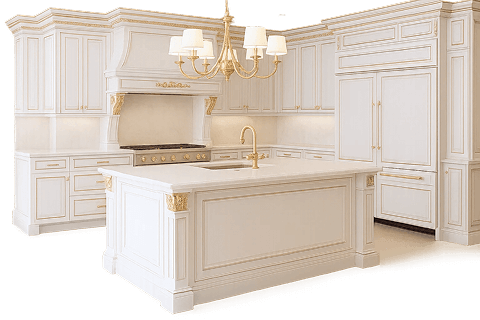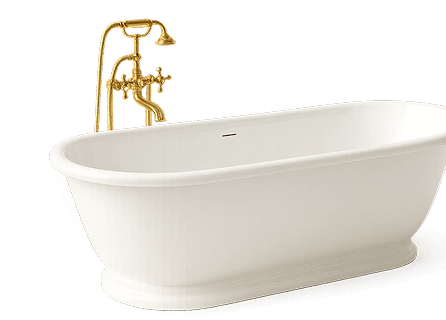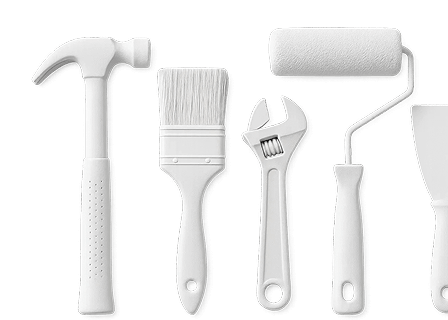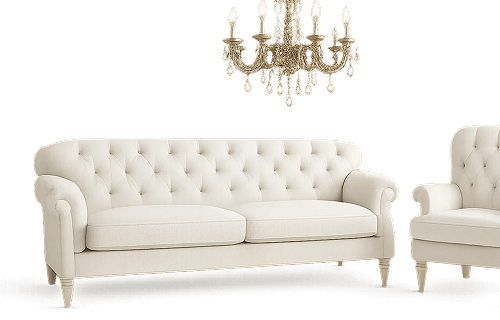Choosing The Right Countertop For Your Kitchen Renovation
How do I choose a countertop? If you have an ongoing kitchen renovation or construction, that question is probably lingering on your mind. The answer is not simple anymore because kitchen countertop options have increased over the years, making it more challenging to choose one. Wood butcherblock or plastic laminate that were the most popular options initially are no longer the only options for homeowners. Now, thebest countertop material for the kitchen ranges from renewable acrylic sheets to tinted concrete. The colours, textures, and patterns of those materials also differ, increasing the complexity of picking one.
When figuring out how to choose the best countertops for the kitchen, your budget and the popularity of the countertop types are not the only considerations. Functionality, maintenance, and style are other essential factors you should feature in your decision-making process. To know how to select countertops like a pro, you must also know the best material types, which we explore below.
GRANITE
Granite is a very strong and durable material that comes in a variety of shades such as blacks, whites, greens, beiges, and corals. No two pieces are exactly the same. There are over 3,000 different types and colors available in the market, meaning it is possible to get something really unique. This countertop, which is normally the most popular choice for kitchen remodels comes in two different finishes. Polished – which gives it a shiny, darker look, and honing which gives it a soft matte finish. Other advantages of granite are:
- It is almost impervious to heat
- It is strong and durable
- It is attractive, increasing the resale value of your home
- It is nearly maintenance-free and you can treat it with newer sealers
However, granite is not suitable for DIY installation. It can crack if improperly installed or when stressed. Avoid cutting on the granite surface because knives are quickly dulled when they cut on granite.
MODULAR GRANITE
Modular granite is one of the best options for homeowners looking for a material to handle effortlessly. It is usually thinner than slab but larger than tile. Therefore installing it without professional help is easy. They are also bigger than regular granite, but they cost less. The benefits you are likely to get from modular granite include:
- Affordability – especially compared to granite
- Perfect for DIY users
- The same resistance to scratches as regular granite
The modular material also has several disadvantages. For instance, its seams remain visible, accessing it can be challenging, offers limited versatility, and is more susceptible to cracking. Also, it does not add the same value that regular granite adds to a property, and it may not be compatible with standard countertops.
GRANITE TILE
Granite tiles are like ceramic tiles. Their weight and size make them suitable for DIY users, and the cost makes them perfect for property owners on a tight budget.
The benefits of granite tiles include:
- Cost- efficiency – It is cheaper than regular granite.
- It is available in multiple variations – You can choose a suitable pattern or colour for your style.
- It lasts long
- Installation does not require a professional
On the other hand, granite tiles do not provide the same elegance that natural granite gives. The grout lines usually remain visible, which can be less attractive. It also adds less value.
HONED GRANITE
Honed granite takes polished granite material to the next level. If you do not like the glossy finish look on shiny granite materials, the matte finish on the honed material will be perfect for you. It has all the best attributes of traditional granite, such as resistance to chipping, scratches, heat, and cracks. It also has impressive longevity.
It adds significant value to the property and is available in multiple colours and designs. Therefore finding one that suits your unique style is easy.
Disadvantages:
- It requires high maintenance in terms of resealing
- It costs more and is vulnerable to stains
TRAVERTINE
Travertine countertops provide the easiest way of transforming kitchens that have neutral designs. However, you must remember to seal its surface properly, or you will have to deal with trapped food in the dents regularly. The indents can also absorb liquids and attract bacteria; therefore, thorough cleaning is necessary. That makes travertine a high maintenance option, but it does not reduce its aesthetic appeal. Its finishes can make the room cozier and more inviting, and it is one of the most durable countertops. It is environment-friendly and can work well whether you install it on top of tiles or slabs.
Travertine has several disadvantages:
- It absorbs water and can harbour bacteria
- Susceptible to scratches
- It is vulnerable to heat damage
- Requires sealing regularly
- It can get stained and cannot withstand acidic elements like lemon juice
CERAMIC TILE
Ceramic tiles are the most versatile countertop options. They look great and function effectively on walls, floors, and kitchen counters. The best part about having ceramic tiles is that you can rejuvenate old ones or reuse them. Modern ceramic tiles have many colour and texture options. That means you get endless installation options when you use your imagination – you do not have to choose standard boring installation styles. Despite the many pros, tiles can crack easily and will require grouting. Plan for repairs and include maintenance costs when buying the tiles.
Advantages
- The tiles have significant longevity, so you will not replace them regularly
- Heat or excess moisture cannot destroy them
Disadvantages
- Grout can stain easily, forcing you to clean or replace it frequently
- Ceramic tiles are not resistant to chipping or scratching
- You may end up with uneven surfaces, especially if installation is poor
SOAPSTONE
Soapstone does not offer the same flexibility granite provides on colours. However, it has high resistance to stains and bacteria because of its non-porous nature. It is mainly available in greenish-black, but you can also find lighter and darker grey hues. The quarried stone also has subtle veining.
Soapstone is a very low-maintenance natural stone. It does not need resealing every year as the others do. However, you still need to apply mineral oils to hide any scratches on the surface and make it shinier. Over time, the oils will enhance the stone colour, adding character to the already exquisite material.
Its advantages include:
- Sandstone can blend with any kitchen design ranging from modern to rustic
- It does not absorb moisture
- Minimal maintenance – frequent resealing is not necessary
- Long-lasting
- It does not stain easily
The only disadvantage is the softness. It can easily dent when you drop heavy objects on it or cut it.
RECYCLED COUNTERTOPS
If you are conscious about saving the environment, recycled countertops will be perfect for you. The materials consist of various components such as glass, paper, concrete, plastic, and composite. The variations extend to textures and colours, giving homeowners numerous options. A combination of post and pre-consumer elements brings many benefits such as:
- Assurance that volatile organic compounds will not be present in your house
- Impressive durability
- Simple cleaning requirements as maintenance
- Eco-friendliness
Recycled materials also have several disadvantages like:
- The need for regular resealing for surface protection
- High costs compared to other materials like travertine
- Requires professional expertise for installation – no DIY
STAINLESS STEEL
Stainless steel is mainly known for its strength in industrial applications, but it can also add a sleek touch to your kitchen when you install it as a countertop. Cleaning it is never a problem since it only requires soap and water. It is resistant to damage by heat, meaning you do not have to worry about your hot pans resting on the surface. Because it is prone to dents and scratches, you cannot cut on the surface. It is a perfect addition to specific parts of the kitchen, like the dining area.
Benefits
- Maintaining hygiene is easy
- Installation is straightforward
- It’s durable
- Recyclable material (it is environment-friendly)
- It does not stain and is heat resistant
Possible demerits include:
- Prone to scratches and dents
- It does not fit in with traditional kitchen designs. Looks better in modern spaces.
- Can increase noise levels in the room
GLASS COUNTERTOPS
Glass has always been the go-to material when property owners need to make a distinguished clean appearance. The translucent material can change the visual impression when used as a kitchen countertop.
Contrary to what most people believe, glass countertops are available in a wide range of colour options and textures. They are mixed with other components that allow the combination of various hues, such as green, blue, and brown, among others. So choosing one that blends with your palette choice in the kitchen should be easy.
Glass countertops also consist of recycled materials. Although recycling glass is not an environment-saving option, it provides high-quality products. In most cases, the mixture of glass pieces with different colours produces countertops comparable to granite. The countertops are also available in concrete, tiles, and resin, allowing you to pick one that is more suitable for your kitchen.
The main concern with glass countertops is always price, especially with installation. However, you can still use it as an accent in some sections instead of the whole kitchen.
Pros
- Multiple variations of colours, textures, styles, and materials are available
- Lasts long
- Non-absorbent
- It can resist heat
Cons
- It can easily crack or chip due to pressure from heavy kitchen items
- Installation requires professionals, which comes at a higher cost
SLATE COUNTERTOPS
Slate has properties similar to other natural stones like marble and granite, but it is cheaper than the two. It is leak-proof, which means it does not stain or absorb water. It is also durable, resistant to heat, and does not chip. In terms of appearance, it has tenuous veining and is available in various shades of grey, pink, brown, purple, green, red, blue, and black hues.
Advantages
- Available in different variations
- It does not need high maintenance like marble and granite
- It is waterproof
- It is attractive, with subtle colour shades
- It is affordable
- It lasts long, does not dent easily, and is resistant to heat
Disadvantages
It can have sharp corners that can be dangerous in the kitchen.
ENGINEERED STONE (QUARTZ) COUNTERTOPS
These countertops are extremely durable and are very easily maintained. They come in a wider variety of colours than natural stone countertops. They will cost you roughly the same as granite would. Engineered stone countertops are popularly known as quartz countertops. These countertops contain as much as 93% quartz particles and other minerals which are shaped into slabs and bound using resins. Note there are no solid quartz slabs that are produced in quarries. Some engineered stone countertops are convincing copies of natural marble, complete with similar veining. However, engineered stone, unlike natural stone, does not require annual sealing. Other advantages of engineered stone countertops are:
- Slabs are uniform and have no imperfections
- They can be custom-fabricated into any shape or size
- It is impervious to acid, heat, and stain
SOLID SURFACE COUNTERTOPS
Solid surface countertops come in almost any colour desirable, they are stain resistant and scratches are easily buffed out. Solid-surface material is sold under brands, the most popular being Avonite, Swanstone, and Corian. It is a man-made material consisting a blend of acrylic particles and resins, pressed into sheets. Solid-surface countertops have been around for about 50 years and are considered as space-age alternatives to natural stone which they mimic.
Other advantages of solid-surface countertops are that their seams are virtually invisible and they come in integrated sink/countertop units. Be careful though, as hot pans can damage these countertops. Installation of solid-surface material should be left to a pro.
WOOD COUNTERTOPS
A wood countertop, for example, butcher block gives a kitchen a warm comforting feeling. They clean very easily and scratches can be sanded out no problem. Water damage can occur quite easily however, so it is important to seal the surface quite often to avoid this.
CONCRETE COUNTERTOPS
These countertops are quickly rising in popularity. They can be customized in many different colours and finishes. These countertops will require a lot of care and maintenance. Extreme changes in weather can cause this surface to warp. You must be careful to never leave damp sponges or towels on the surface as this can cause discolouration. It is recommended to seal them every four months and to also wax them every two to three months to keep them looking great.
LAMINATE
A laminate countertop is the choice that is easiest on your wallet. This choice comes in many different designs, patterns, and colours. Although it has had a reputation for scratching very easily in the past, Laminate has made many advances in the field of scratch resistance in recent years.
The most notable laminate countertop trademarks are Formica, Wilsonart, and Nevamar. Laminate countertop is a plastic-coated synthetic material that is then bonded to a particleboard (MDF) core. The material is characterized by a smooth, easy to clean surface. Although laminate countertops have for long been regarded as the poor cousin to more prominent countertop materials, they have seen a surge in popularity over the past few years, the major reason for this being they are easy to maintain and they are easy on your wallet.
MARBLE COUNTERTOPS
Marble is a popular natural stone choice for countertops. No two sheets of marble are exactly the same, ensuring you have a unique countertop. However, marble has a high price tag and is, therefore, rarely used on the entire countertop. You can limit its luxurious look to islands or the sections of your countertop reserved as a baking center. Marble is waterproof and heatproof and is exceptionally beautiful with unique veining, but it requires regular sealing because of its penchant for scratching and staining.
SOAPSTONE COUNTERTOPS
Soapstone is making a resurgence as an alternative to granite. The natural stone which can mostly be seen in historic homes is also making a resurgence as a sink material. Soapstone is characterized by a dark grey color, smooth, silky feel, and an attractive antique-like patina over time. Despite its name and common expectations, architectural soapstone used for countertops is quite hard and stain resistant. It is fairly impervious to heat and damage can always be sanded out.
MIXING AND MATCHING IS AN OPTION
Remember, you don’t have to choose just one material. For example, if you have an island in the centre of your kitchen you may choose to go with a different material than the rest of your countertops.
Additionally, you may choose different surfaces for different tasks. Having a slab of marble for baking, and a piece of butcher block for chopping beside it.





